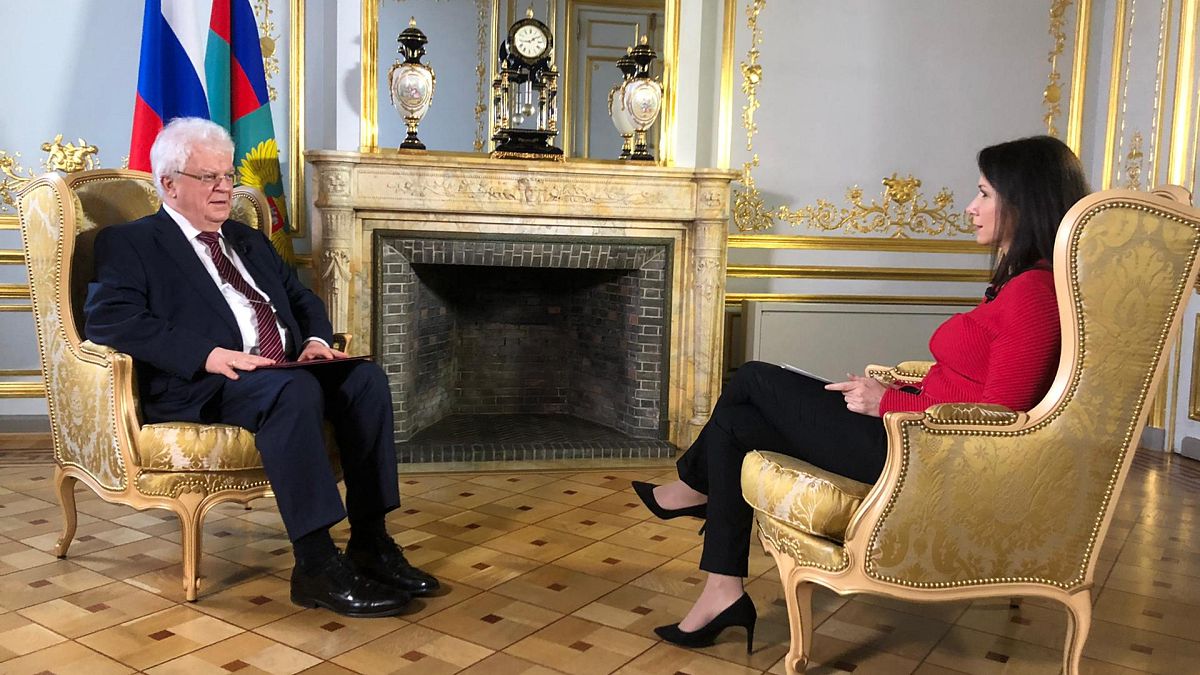EU leaders met virtually this week to take stock of the epidemiological situation across the continent, as sanctions against Russia were agreed upon by foreign affairs ministers.
Diplomats serve their countries sometimes in dangerous environments and we were reminded of this in a sad and terrifying way this week.
Italy paid tribute to its ambassador to Congo and his bodyguard, Luca Attanasio and Vittorio Iacovacci, who were killed in an attack on a UN convoy.
They were travelling to a World Food Program (WFP) school feeding project when an attack occurred near the eastern city of Goma - an area that has seen a lot of sectarian violence in the past.
Congo's interior ministry blamed an ethnic rebel militia organisation for the killings, but the group denied any responsibility.
Needless to say, such a verbal back-and-forth did not satisfy the Italian government who wants to know exactly what happened
"We have formally asked WFP and the United Nations to open an investigation that will shed light on the event, the motivations for the security measures that were taken and who was responsible for these decisions. We have also explained that we expect clear and exhaustive answers as soon as possible," Luigi di Maio, Italy's Foreign Minister said on Wednesday.
When news of the deadly attack in Congo broke, di Maoi had just left a meeting with his EU colleagues in Brussels, where they had agreed to sanction Russian individuals responsible for the persecution of opposition leader and anti-corruption crusader Alexei Navalny.
But according to a Polish MEP and Vice-Chair of the Parliament's Foreign Affairs committee, Witold Jan Waszczykowski, the measures taken were insufficient and were described by him as a "joke".
"Looking at it from the perspective of Central Europe, it looks like a joke because these are not even symbolic sanctions. Just a few people were asked not to travel to the European Union. Most of these people will never be allowed to travel to the European Union because they are either party members or security service members, so this is a very meaningless penalty imposed on Russia," Waszczykowski told Euronews.
The decision to go for only a small escalation in sanctions reflects divisions in the bloc over how to approach Russia.
Some EU leaders have advocated a renewed dialogue with Putin, but when they met virtually this week on Thursday and Friday, there was no mention of differences with Moscow.
The videoconference summit was dominated by the pandemic and what more Europe can do to speed up the exit strategy, meaning more vaccines as fast as possible.
And European Council President Charles Michel said that this was leaders' "top priority".
"Our top priority now is speeding up the production and delivery of vaccines and vaccinations across the European Union and it is why we support the Commission’s efforts to work with industry to identify bottlenecks, guarantee supply chains and scale up production and we want more predictability and transparency to ensure pharmaceutical companies comply with their commitments," Michel said at a press conference following the meeting on Thursday.
Commission President Ursula von der Leyen also confirmed that vaccination certificates, aimed at allowing citizens to travel without quarantining on arrival in member states, could be ready for use within three months.
"The time frame, the three months is regarding the technical development, so we do need at least three months for the technical development of an interoperable system on the European level. There is lots of work to do by the Commission on the European level and lots of work to do technically for the member states on the national level," von der Leyen said.


